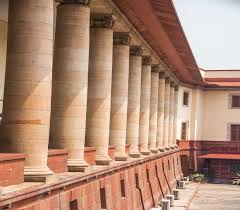The Division Bench has dismissed a Writ Appeal and thereby affirmed the correctness of an order dated 27 February 2018 of a Single Judge dismissing the writ petition filed by the appellant. (Para 2)
For the continuous supply of water at concessional rates for the operation of the factory. The agreement was valid for a period of 20 years from the commencement of production. On 3 April 1987 (Para 3)
The tariff for the supply of water for industrial use was fixed at Rs 18.40 per kL and Rs 9.20 per kL for non-domestic use. Between 6 June 2014 and 16 September 2014, water bills were raised on the appellant based on the tariff fixed in the agreements dated 11 November 2011. (Para 4)
A demand notice was received by the appellant from the Assistant Executive Engineer by which new water rates were sought to be implemented and the appellant was called upon to pay the differential amount with effect from 20 July 2011 till 30 June 2014. (Para 5)
The notice stated that the Board’s failure to pay HESCOM its dues would impact upon electricity and water supply. Citing losses caused to the Board, and the audit officers’ objections against the non-revision of water bills under government orders, the notice requested payment of arrears, in accordance with the revised rates. (Para 6)
The Writ Petition was dismissed by the Single Judge primarily on the ground that Clause 11 of the agreements stipulated that any dispute that would arise between the parties would be resolved firstly by mutual discussion and on a failure of the process, by referring the matter to the Chief Engineer, the second respondent, whose decision would be final and binding. The Single Judge also observed that in terms of clause 4 of the agreements, the Board was entitled to increase the rates. However, in view of the dispute resolution mechanism provided in Clause 11, the Single Judge declined to entertain the petition and relegated the petitioner to the contractual remedy in terms of the agreement. (Para 9)
Hence, the Division Bench held that the dispute arising out of the impugned notices was covered by the scope of the agreement, and no interference under Article 226 of the Constitution of India was warranted. (Para 10)
Whether the High Court was justified in dismissing the Writ Petition and the Writ Appeal on the strength of Clause 11 of the agreements between the parties. We must examine whether there was a valid arbitration agreement between the parties, justifying the referral to the Chief Engineer under Clause 11. (Para 14)
Once we have come to the conclusion that the provisions of Clause 11 do not constitute an arbitration agreement, the corollary is that the High Court ought not to have relegated the parties to the Chief Engineer on the strength of Clause 11. It would have been appropriate if the High Court had finally determined the challenge addressed by the appellant in the writ proceedings under Section 226 of the Constitution. Though the Single Judge has adverted to Clause 4, evidently there is no final determination in that regard. (Para 24)
The Court has been apprised of the fact that in the meantime, the appellant, which has been taken over by the Aditya Birla Group, has continued to pay the revised water rates and has cleared the arrears while reserving its rights to avail of the remedies. The appellant shall continue to pay the rates as fixed by the Board from time to time subject to such final orders as may be passed by the High Court in the Writ Petition which is restored to the file of the High Court. (Para 28)
2023 STPL(Web) 384 SC
[2023 INSC 916]
Supreme Court Of India
Solaris Chem Tech Industries Ltd. Vs. Assistant Executive Engineer Karnataka Urban Water Supply And Drainage Board & Anr.
Civil Appeal No 6609 of 2023 (Arising out of SLP (C) No 21920 of 2018)-Decided on 10-10-2023
https://stpllaw.in/wp-content/uploads/2023/10/2023-STPLWeb-384-SC.pdf







